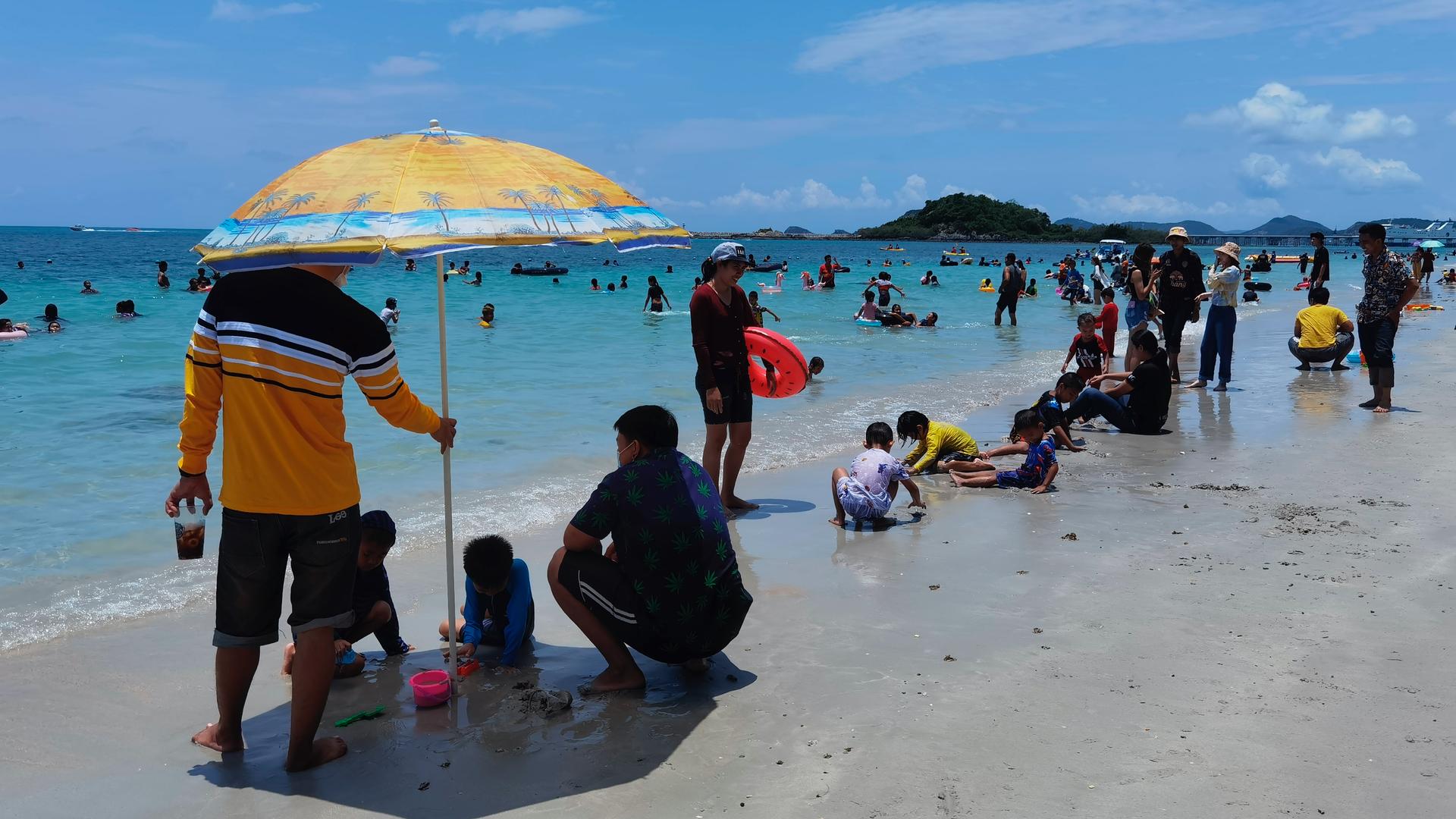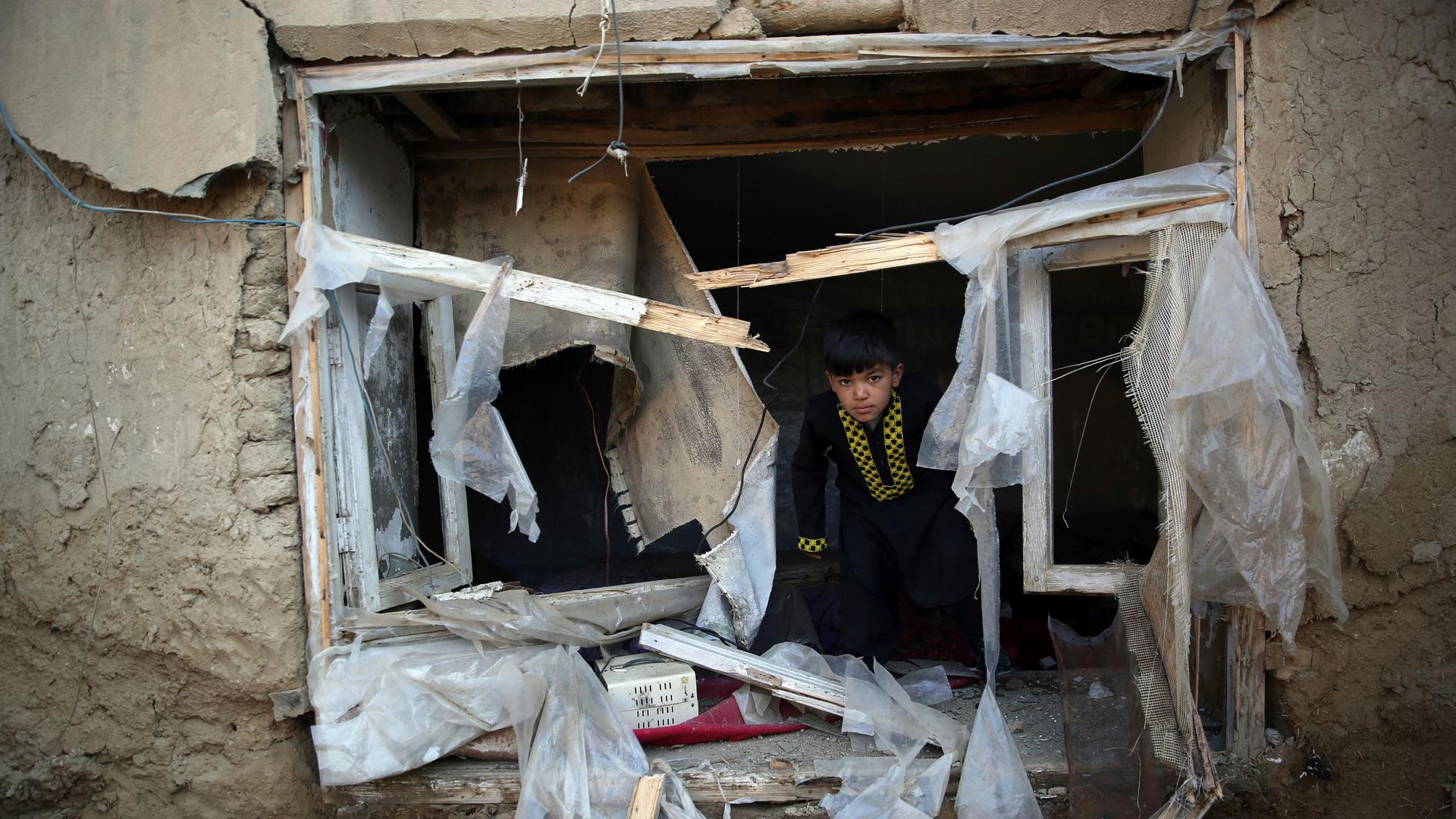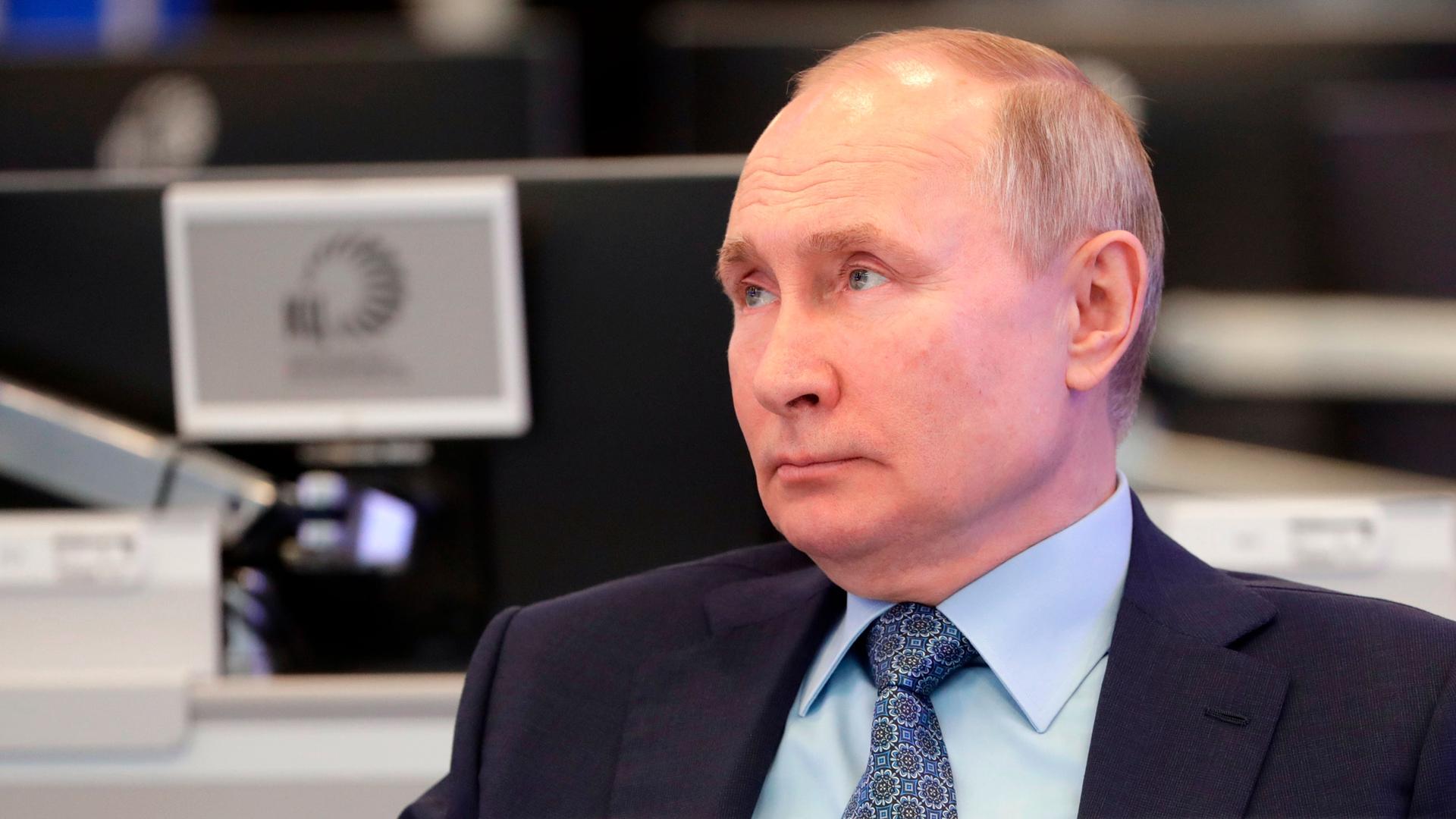Biden administration levels stiff new sanctions against Russia
Russian President Vladimir Putin visits the Coordination Center of the Russian Government in Moscow, Russia, April 13, 2021.
Top of The World — our morning news roundup written by editors at The World. Subscribe here.
The White House has announced sanctions against Russia and the expulsion of Russian diplomats in response to Moscow’s interference in US elections and the cyber breach to vital federal government agencies last year.
The measures announced Thursday include sanctions on six Russian companies that support the country’s cyber activities and on 32 entities and individuals for disinformation campaigns and carrying on government interference in the 2020 US presidential election. The executive order also expels 10 Russian diplomats, some of whom are suspected intelligence officers.
The announcement includes the first retaliatory measures against Moscow for the cyberhack known as the “SolarWinds” breach, in which Russian hackers are believed to have used malicious code that enabled them to access the networks of at least nine US agencies and US companies. The US additionally named the Russian Foreign Intelligence Service and several connected entities as being responsible for SolarWinds. US officials believe this was an intelligence-gathering operation.
What The World is following
Mumbai, India, and other parts of the western state of Maharashtra hardest hit by the coronavirus pandemic are facing tighter restrictions for 15 days to control the surge of COVID-19 infections. Under the measure, most industries, businesses and public places are closed. With no job prospects due to closures, thousands of workers are leaving the metropolis.
And, after reports of very rare but potentially dangerous blood clots thought to impact 1 in a million recipients of the Johnson & Johnson COVID-19 vaccine in the US, South Africa has paused the use of the single-shot jab, leaving the country without any shots for its vaccination effort. South Africa has more than 1.5 million confirmed cases and so far, it has inoculated 290,000 health care workers with the J&J vaccine. The country’s health minister has said there are no local reports of blood clots. Large vaccination efforts planned to start next month are dependent on the delivery of J&J and Pfizer-BioNTech vaccines.
From The World
One Thai island’s bold scheme to bring back tourists

Before the pandemic, Thailand was among the world’s most-visited countries, bringing in 40 million travelers each year. Then came COVID-19, which effectively closed Thailand to tourists.
Hit hardest are Thailand’s tourist hot spots, such as Phuket — an island of crystal-sand beaches, palm trees and resorts, once relying on 10 million annual foreign guests. A plan for reopening Phuket to tourism has emerged, but it’s controversial.
New technology could identify thousands of unknown soldiers who died in World War II

Some African American soldiers of the segregated 92nd Infantry Division remain unknown. But new technology could now help to identify them.
Bright spot
Ten years ago, when a massive earthquake and subsequent tsunami devasted Japan’s Fukushima region, a 100-year-old clock in a Buddhist temple stopped working because of flood damage. There were efforts to get the clock ticking again without any luck. Now, 10 years later, in what scientists suggest was an aftershock, the clock has begun working again.
In case you missed it
Listen: A last push toward a peace in Afghanistan

Afghans have five months before US troops depart and many see that period as the last chance to push the peace process forward. And, the police shooting of Daunte Wright, an unarmed Black man killed by an officer during a traffic stop in a suburb of Minneapolis, is raising questions once again about why policing in the US can be so deadly — and how other nations do things differently. Also, an island in Thailand has a creative way to lure back foreigners — without bringing in COVID-19.
Don’t forget to subscribe to The World’s Latest Edition podcast using your favorite podcast player: RadioPublic, Apple Podcasts, Stitcher, Soundcloud, RSS.
